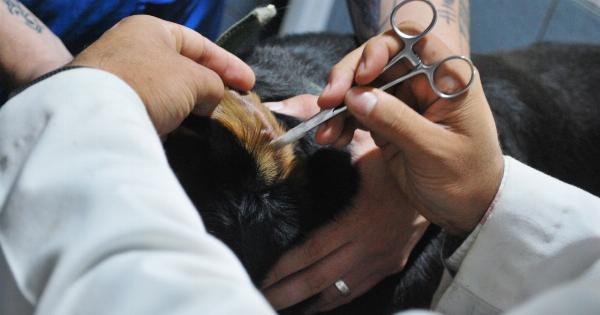Sticking anything in your ears may seem harmless or even necessary at times, but it can actually be quite dangerous.
Many people resort to using cotton swabs or other small objects to clean their ears or relieve itchiness, but this practice can often lead to detrimental consequences. In this article, we will explore why you should never stick anything in your ears and the potential risks associated with this habit.
The Fragile Nature of the Ear
The ear is a complex and delicate organ that is responsible for both hearing and maintaining our sense of balance. It consists of three main parts: the outer ear, the middle ear, and the inner ear.
Each part plays a significant role in ensuring proper auditory function, and any damage or interference can lead to hearing loss or other complications.
The Myth of Earwax Removal
One of the common reasons people stick objects in their ears is to remove earwax. However, this practice is unnecessary and can cause more harm than good.
Earwax, scientifically known as cerumen, is a natural substance produced by the body to protect the ear canal and prevent harmful particles from entering. The ear is self-cleaning, and excess earwax is usually expelled naturally. By attempting to remove it aggressively, you run the risk of pushing the wax deeper into the ear or damaging the delicate ear canal.
Potential Injuries and Complications
Inserting objects into your ears can lead to various injuries and complications. Here are some of the risks associated with this dangerous habit:.
1. Ear Canal Abrasions
When you stick objects like cotton swabs or bobby pins into your ears, you may inadvertently scratch or injure the delicate lining of the ear canal. These abrasions can cause pain, discomfort, and even increase the risk of infections.
2. Impacted Earwax
Instead of removing earwax, inserting objects can push the wax further into the ear canal, leading to impaction. Impacted earwax can cause hearing loss, dizziness, and ear pain. It may require professional intervention to safely remove the blockage.
3. Perforated Eardrum
The eardrum, also known as the tympanic membrane, is a thin layer of tissue that separates the outer and middle ear.
Inserting objects forcefully into your ear can result in a perforated eardrum, causing hearing loss, ear infections, and even balance issues.
4. Infections
By introducing foreign objects into your ears, you increase the risk of introducing harmful bacteria or fungi. These microorganisms can cause severe infections, such as otitis externa (outer ear infection) or otitis media (middle ear infection).
These infections can be painful and may require medical treatment.
5. Damage to Hearing Structures
Inserting objects into your ears can damage the delicate structures responsible for hearing. The sensitive hair cells within the cochlea can be wounded or destroyed, leading to irreversible hearing loss and tinnitus (ringing in the ears).
Alternative Methods for Ear Cleaning
Although sticking objects in your ears is not safe, there are alternative methods for ear cleaning and relieving discomfort:.
1. Ear Drops
If you experience excessive earwax buildup, consider using over-the-counter ear drops specifically designed to soften and aid in natural wax removal. These drops can be used as instructed on the packaging and gently flush out any excess wax.
2. Warm Water Rinse
You can try a warm water rinse to remove excess earwax naturally. Tilt your head and use a bulb syringe filled with warm (not hot) water to gently flush out the ear canal. Ensure the water pressure is gentle, and do not force any water into the ear.
3. Seek Professional Help
If you suspect a significant earwax blockage or experience persistent discomfort, it is best to consult a healthcare professional.
They can safely examine your ears and determine the best course of action, which may involve professional earwax removal or other necessary treatment.
The Importance of Ear Care
Instead of resorting to harmful practices, it is crucial to prioritize ear care and adopt healthy habits. Here are some essential tips to maintain good ear health:.
1. Avoid Excessive Noise
Exposure to loud noises can be detrimental to your hearing. Protect your ears by wearing earplugs or earmuffs in noisy environments, such as concerts, construction sites, or when operating loud machinery.
2. Maintain Ear Hygiene
Gently clean the outer part of your ears with a washcloth during your regular bathing routine. Avoid inserting anything into the ear canal, as this can disrupt the natural cleaning process and cause harm.
3. Be Cautious with Water
When swimming or bathing, take precautions to prevent water from entering your ears. Earplugs or swimming caps can offer some protection and reduce the risk of infections related to moisture.
4. Regular Check-ups
Include ear examinations as part of your routine medical check-ups. With professional guidance, any potential issues can be detected early, and appropriate measures can be taken to maintain your ear health.
Conclusion
Sticking anything in your ears is a harmful practice that can lead to severe injuries and complications. It is crucial to understand the fragility of the ear and adopt safe alternatives for ear cleaning and discomfort relief.
Prioritizing good ear care habits and seeking professional help when needed will help safeguard your hearing and overall ear health.





























